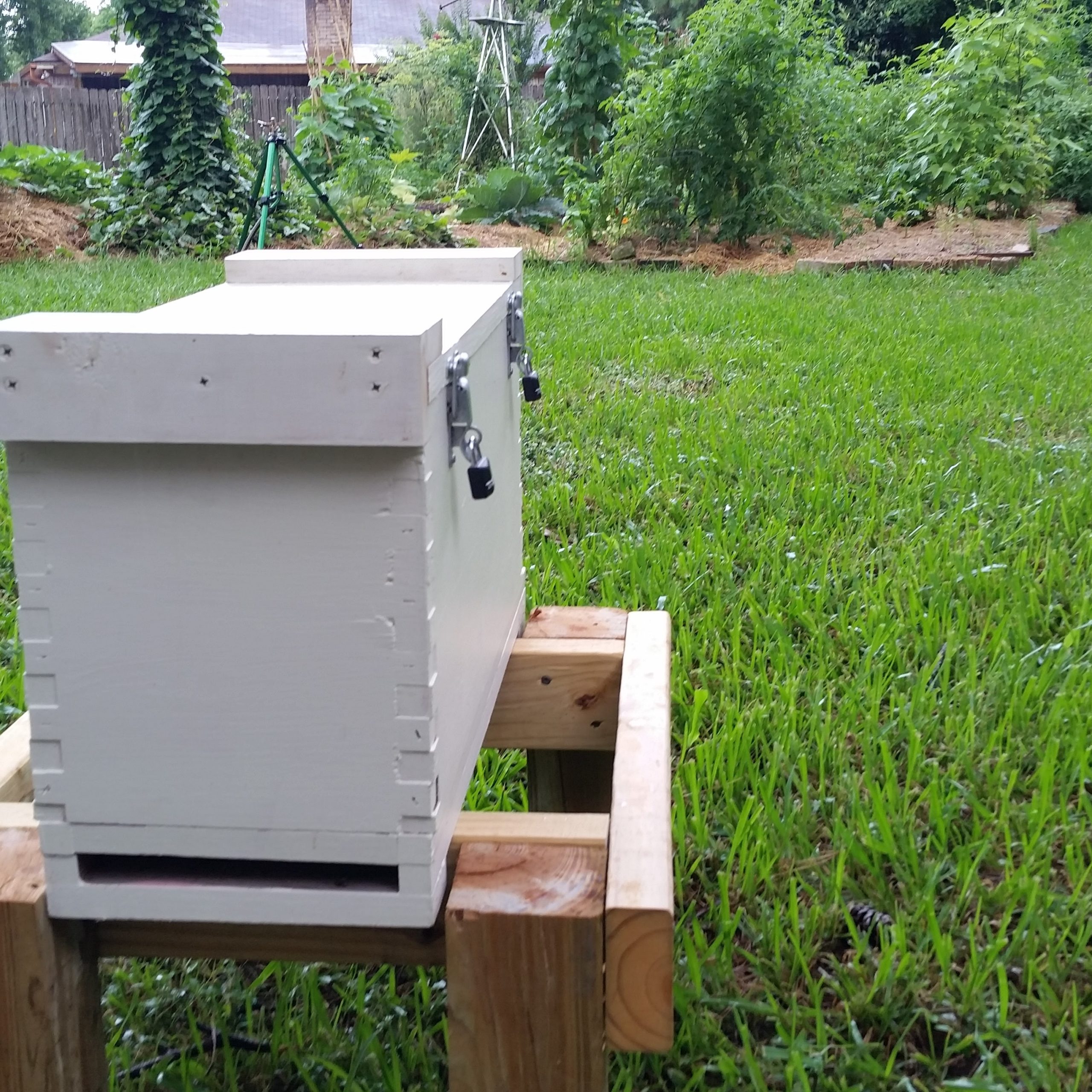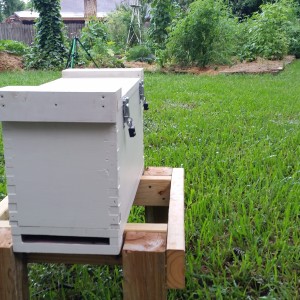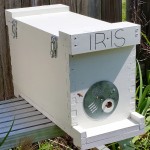

* March 2017 – Due to the growth of our business, we no longer offer pollination services.
What’s so important about pollination?
For centuries, farmers have understood the benefits of honey bee pollination. In 1917, botanist Burton Noble Gates wrote:
“He may fertilize, and cultivate the soil, prune, thin and spray the trees, in a word, he may do all of those things which modern practice advocates, yet without his pollinating agents, chief among which are the honey bees, to transfer the pollen from the stamens to the pistil of the blooms, his crop may fail.”
80% of the crops we consume are pollinated by honey bees. Some of these crops, like strawberries, okra, and grapes, may be pollinated by wind or other insects but produce higher yields when pollinated by honey bees. Other crops, like cucumbers, squash and watermelon, must be pollinated by bees in order to yield crops. Even in leafy crops like lettuce, where we consume a part of the plant not involved with pollination, the next year’s crops are a result of honey bee pollination for seed production.
At the turn of the 20th century, experts recommended every farm keep a few colonies of bees. As our population has migrated to urban and suburban areas and farming has grown more specific than the family farm, fewer farmers and gardeners are willing or able to maintain honey bee colonies.
What is a pollination service?
A pollination service allows any farmer or gardener to reap the benefits of honey bee pollination. With the introduction of new pests, diseases, and stress to honey bee populations, maintenance of honey bee colonies in the 21st century requires more time and effort than it did even 20 years ago. Commercial farmers who value the benefits of honey bees now outsource the pollination of their crops to beekeepers through a pollination service. A pollination service is the rental of one or more honey bee colonies for pollination of crops.

How big is a pollination hive?
For commercial operations we have honey production hives that are 4-6 boxes high and could contain 100,000 bees during the peak nectar production season in May and June. For our Backyard Pollination Service, we use nucleus hives, or nucs, to maintain lower populations and make them easier to transport and place. A nuc contains 5 frames of bees and is a self-contained colony with a queen, brood or developing bees, a few thousand worker bees, and stores of honey and pollen. The worker bees won’t all leave the hive for pollination, since the younger ones are still performing hive duties, like raising brood or grooming the queen. A nuc takes up less than 2 square feet of space.
Do I need to get any special tools or clothing?
No. You won’t need to conduct any inspections or even open the pollination hives. In fact, we lock our pollination hives to prevent pets or curious children from accidentally opening the lid to expose the frames inside. We won’t even open them in your yard. We perform all our inspections in our yards. If you order a hive for multiple weeks, we’ll pick up the old one and deliver a new one every week to ensure you have a healthy hive that will not swarm.
If the nuc is locked, how do the bees get out?
We take advantage of the bees’ natural instinct to go home at night and close the hive the night before delivery. We have a small hole on the front of the nuc with a disc “door” that we’ll open once they’re in place. The bees will establish a flight path to and from that door as they begin foraging in your farm or garden. We pick up the hive in the evening to ensure they’re all home and move back to our yard.
Will the bees bother me in my garden?
For the most part, the bees will not bother you as long as you don’t bother them. Obviously, if you bang on the hive or try to open it, they may get a little defensive. Bees foraging in your garden have nothing to defend and will not sting you unprovoked. If you stand for an extended time in their established flight path for 6-8 feet in front of the hive, you may annoy them and they’ll let you know. Other than that, you shouldn’t even know they’re there.
What about my neighbors?
You probably have some flying insects already between native bees and wasps, so our honey bees will just blend right in. When bees leave the hive to forage, they will quickly gain altitude, especially if they have to fly over a fence. Your neighbors won’t complain about higher yields on their fruits and vegetables and they probably won’t know you have a pollination hive unless you tell them. We won’t announce our presence and we’ll leave the discretion up to you.
Will this hive swarm?
No. We manage our pollination hives to always keep them populated, but always just a little under capacity to ensure they won’t outgrow their hive and swarm. Swarm preparations in the hive take at least 7 days, so we’ll inspect the hive prior to delivery to ensure they aren’t making plans.
Which insecticides can I use?
To keep this simple, none. We ask that you refrain from spraying any insecticides while you have our bees. Insecticides, whether organic, synthetic, natural, nicotinoidal, or systemic, kill insects. Period.
Can I get some of the honey from the backyard pollination hive?
Our backyard pollination hives are not big enough to support extended honey production and the amount of nectar generated by your backyard would be hard to find on a frame of honey. As these hives grow, we’ll remove frames of brood or stores to support our other hives in their respective yards. To find honey from a production hive in your area, please find us at the market or order online.
Why not just get my own hives?
Beekeeping is a great hobby for those with the desire to do it. If you want to be a beekeeper, we’d love to help you get started. However, our pollination service is designed to provide a convenient method of pollinating your backyard garden without the time and expense of being a beekeeper. To get started with your own bees, you’ll need:
- A colony of bees ($150-$250 from local bee suppliers)
- A hive to house them ($250 for a good starter hive)
- Protective clothing, gloves, and a veil ($100 or more, depending on quality)
- Smoker, hive tool: ($50)
Total – $550+ initial expense for 1 hive
You’ll also need to spend time learning honey bee biology, life-cycles, integrated pest management, and disease identification. You’ll need to spend an hour per week during honey production season building and maintaining equipment, inspecting the hive, managing growth, and preventing swarms. After Spring, you’ll need to ensure your bees have enough stores to survive the Summer nectar dearth. In Fall, you’ll need to ensure they are strong enough to survive the varroa mite population increase and have enough stores to survive Winter.
Get prepared to take a few stings. As beekeepers, you’ll get stung. I get stung every day. It happens.
Have a plan for growth. If your colony survives Winter, you’ll probably want to split it into two colonies to prevent swarms. Do you have room for full size production hives? How about 4? Or 8? If you’re able to manage your hives and stay ahead of pests and diseases, growth is inevitable and the management is your responsibility, lest your swarms take up residence in your neighbor’s eaves.
You can do this, but if you just want better yields on your garden, why not leave all of this to us and just rent a pollination colony.
Will the bees pollinate my (insert plant here)?
Bees are insects, with a very small mind of their own. They will pollinate plants they visit for nectar and pollen. They will visit only one species of plant during each excursion from the hive. They will visit closer nectar and pollen sources to conserve energy. They will be more active during sunny days with little wind. A non-inclusive list of common Harris County fruits and vegetables pollinated by bees is: Peaches, Pears, Strawberries, Prickly Pear, Citrus, Cantaloupe, Watermelon, Raspberries, Blackberries, Grapes, Okra, Avocados, Beans, Peas, Cucumber, Squash, Eggplant, and Peppers. We can’t tell them what to pollinate, but if it’s flowering, we can greatly increase your chances.
Where is your pollination service available?
We currently offer pollination service in Northwest Houston. We can easily service areas of Katy, Cypress, Tomball, and Spring. If you’re in other parts of Houston, don’t fret, just get in touch with us and we can probably make it happen.
Did we miss anything?
If you still have questions, let us know in the comments below and we’ll update this page. We look forward to working with you and seeing your garden yields increase.
I have a tree hive and have some questions about your services
Please contact me
Deanna, we’ll try to get in touch 🙂